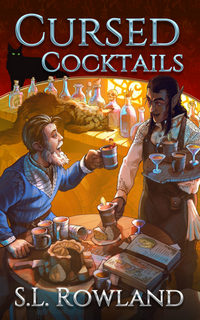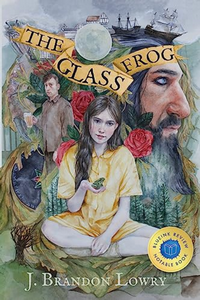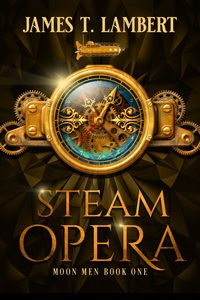by Wesley Parker
DETAILS:
Series: Percy Martin, #2
Publication Date: September 15, 2023
Format: e-Book
Length: 279 pg.
Read Date: June 24-25, 2024

WARNING
If you haven’t read Headphones and Heartaches by Wesley Parker yet, don’t read this post. If you’re not sure if you’d want to—this is not the post to read, either. Go read my take on it and then go read Headphones and Heartaches. Or skip my post (just don’t tell me you did that, my ego is fragile) and read the book. That’s up to you. But the first sentence of the next section contains a major spoiler for it.
Something about senior year has caused a shift in my relationships with those closest to me. People have been weirder, going on soliloquies about the past and how much I’ve grown up. It feels like I’m at the beginning of a long goodbye.
What’s Detours and Do-Overs About?
When we left Percy, he was mourning his mother, being helped through her death by overdose by his adoptive mother, girlfriend, and best friend. When we pick up with him here…well, he’s still doing the same. But he’s getting better all the time. It’s the beginning of his senior year, with all the drama, tensions, and excitement that brings.
Percy’s thinking about colleges—something he’d never believed possible until now. He’s even thinking about out-of-state colleges, and the teacher who took him under his wing in the last book has helped him connect with someone from the University of Maine and thinks he can get him a great scholarship. It’s hard to say what it is exactly about that school that captures Percy’s attention—maybe just the novelty of him leaving New Jersey by choice. This isn’t going to go well with his girlfriend, who has her sights set on a local college, but he doesn’t have to tell her right away, right?
Yeah, he’s still pretty stupid when it comes to relationships.
While he’s trying to figure that out, his new mom, Grace is making plans for her future. If Percy isn’t going to be around, maybe it’s time for her new chapter, too. (Percy’s glad for her to be able to think this way, but that puts some pressure on him to leave, too)
But that’s all about the future—about next year. For now, he has to focus on completing his Senior Year. One thing he has to do is a community service project—one more involved than any I’ve seen a High Schooler have to accomplish. He volunteers at a homeless shelter/food bank. It’s a great match for him—he has a real passion for the work, he can relate to everyone there, and soon is even helping them plan the future for the shelter.
While Percy connects with everyone there in one way or another—there’s a little boy, Dante, whom he meets before his interview. The two of them have an instant rapport—Percy sees himself in Dante. He was Dante just a few years ago—living in and around places like this with a single mother trying to provide for the two of them while battling her demons. Dante sees someone a little older than him who genuinely cares about him and opens up to him in ways he doesn’t with anyone else at the shelter.
Those are the pieces—the novel follows Percy and the people above over the course of the school year—through lows (very low lows), highs, and everything in between. Until we get to the end and see where Percy and his decisions seem to indicate the direction of his life.
The Heart of this Book
That heading is probably overstating it a bit, but oh, well. The part of this book that makes you like Percy the most, the part that makes you root for him (even when he’s being a jackwagon) is Dante.
Yes, you have to wonder about the staff at the shelter letting Percy ignore any and all boundaries when it comes to this little boy. But Dante’s mother trusts Percy, Dante trusts him even more than she does, and the two become great friends. The affection both ways is real and will make you melt.
There are some shortcomings to this book—but absolutely none of them matter when Dante’s around.
Percy’s Immaturity and Insecurity
Percy had to grow up, in many ways, before he was ready to. His mother’s addiction and frequent homelessness made him deal with things that no child should. Even after moving in with Grace, some of the decisions he had to make called for a level of maturity beyond his years.
But that doesn’t mean he’s got everything figured out emotionally—he still needs to grow up. Add in adolescent hormones and the, ahem, urges that young men in deep-like/love with an attractive young woman wrestle with…and you’ve got a recipe for disaster. Maybe even worse. In a year where he has major choices to make, he needs to think clearly—which is a lot to ask of any young person, but for Percy, it’s even more.
Grace has been a great stabilizing presence in his life—and he’s picked up several others, too. But that doesn’t eliminate all the insecurities he’s built up over the years. In some way, Percy is sure that he will be left alone, that everyone he cares about will vanish, abandon him, or leave him in some other way. These insecurities added to the pressures I mentioned above threaten to overwhelm him.
Arguably they do more than once.
It’s so easy to look at Percy as a young man with it all together. He’s bright, he’s highly motivated, he’s eager, he’s committed, he throws all his heart and energy into his goals. But he’s just a kid, and that shows up in rather inopportune times. I know I lost my patience with him a couple of times as a reader—everyone who isn’t Dante in his life has to think the same things a few times.
Grace
Grace is one of the best mothers in fiction. I didn’t talk about her much when I posted about the other book, and I’m still not going to. She deserves a lot of space dedicated to her, but I think I’d just repeat that opening sentence in various ways.
She’s patient. She’s understanding. She’s supportive. She knows her boy—even if he hasn’t been with her that long, she pays attention to him (better than he does himself). She’s also good about letting him make his own mistakes so he can learn from them. But she’s quick to step in when he needs her to, too.
She’s also just a lot of fun to spend time with. I wish we readers got to see some more of the fun times that Percy and Grace share, it’s just encouraging and heart-warming. But the book has enough other things to cover that we can’t get too much of them.
So, what did I think about Detours and Do-Overs?
I don’t think that this is anywhere as good as the other book featuring Percy. That could be my mood when I read the two. But I don’t think that’s it. I really think my issues stem from the behaviors and attitudes of the teens in this book—they were pretty realistic, I have to say. But they all just really annoyed me.
Not that all the adults were perfect either—some of them displayed many flaws—but the way they all responded to seeing their flaws was encouraging to watch. Emphasizing that they’re adults who are largely well-adjusted. (Dante’s mother, sadly, doesn’t really fit this).
People familiar with Parker’s oeuvre will get a kick out of some of the new characters in Percy’s life, and will be happy to see where their lives have taken them. The resolutions to the various storylines are all satisfying and convincingly told.
One could be tempted to quibble with some of the tidiness of the lives of the characters at the end of the novel—and were this a non-fiction work, you’d be right to do that. This is a work of fiction with inspiring and heartfelt characters, so shut up and let them have nice endings.
Once again, Wesley Parker brings some laughs, a lot of joy, and some warm feelings. I hope he continues to do so. Go read this.

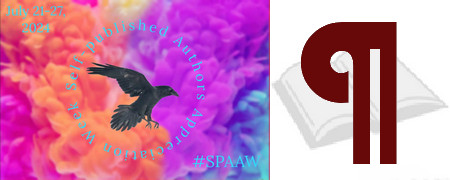
The 2024 Self-Published Authors Appreciation Week Logo was made by Witty and Sarcastic Book Club
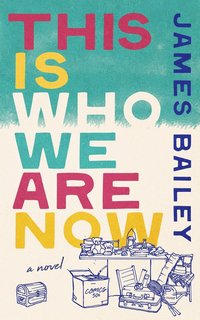 This Is Who We Are Now
This Is Who We Are Now




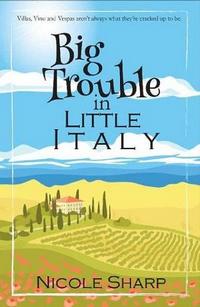




 1.
1. 
